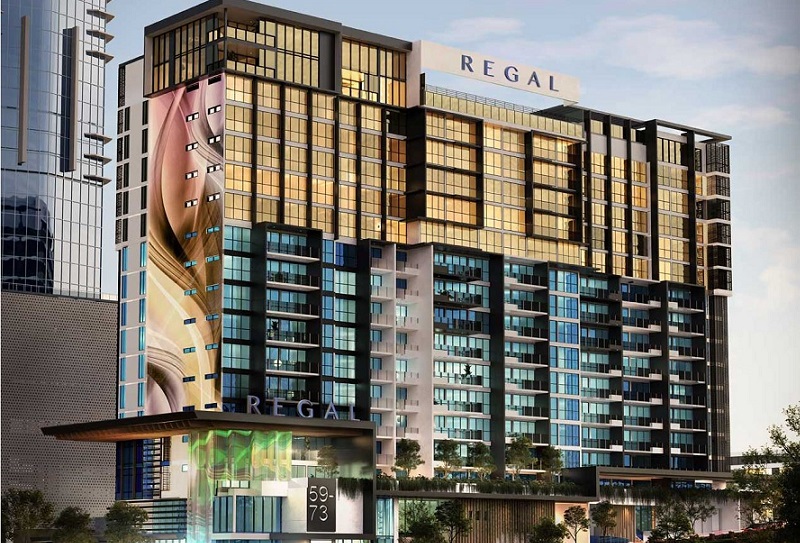Azzura Set to Start $2.3bn Imperial Square Project
Azzura Investments is set to commence construction on the
$2.3 billion Imperial Square project on the Gold Coast, which includes a 108-level super tower set to be one of Australia’s tallest buildings.
Stage one plans in the Robert Badalotti-led development comprise an 18-storey tower with 145 apartments and a boutique 200-room hotel at 59-73 Meron Street, Southport.
The development application for the $155 million tower was approved in January with preliminary approval given to the rest of the build in 2016.
It is the smallest of the four towers planned on the site, with construction of the tallest building at least five years away.
Stage one, Regal Residences, had a mixture of one, two and three-bedroom apartments including two rooftop penthouses, an infinity pool, gymnasium, spa, executive lounge and restaurants.
Related: Developing Australia’s Tallest Skyscraper During Covid-19

Azzura originally planned for a 210-key hotel and 420-room student accommodation on the site, however amendments were made to the plans in 2019.
The new plans designed by Kris Kowalski Architects also include 222 car park lots, space for 132 bicycles and a pedestrian link from Gillian Lane to a future plaza at the back of the development site.
Azzura chief executive Robert Badalotti said Imperial Square was designed to become the new “cosmopolitan heart” of the Gold Coast’s CBD.
“We are absolutely delighted to be bringing a project that has been the subject of meticulous planning and design for more than three years,” Badalotti said.
“This is a defining project not only for Southport city’s cosmopolitan hub but for the Gold Coast in general, taking advantage of the enormous infrastructure such as the light rail, the new Gold Coast Hospital and Griffith University.”
Member for Southport Rob Molhoek said the only way was up for the area, which had suffered a blow from Covid-19.
“[There are] an expected 300 jobs in this stage alone and a huge investment in our Southport CBD,” Molhoek said.
“It is great to see such confidence in our city with the very uncertain year we've been having.”
Restrictions on travel during the pandemic hit the holiday destination hard, however a $1 billion state tourism campaign encouraged Queenslanders to holiday at home and support the industry.
Domestic travel is expected to replace the international tourism industry, although the sunshine state is yet to open its borders to the rest of the country.














